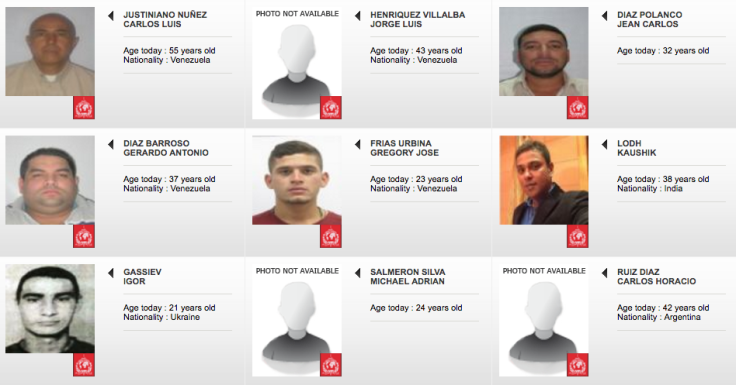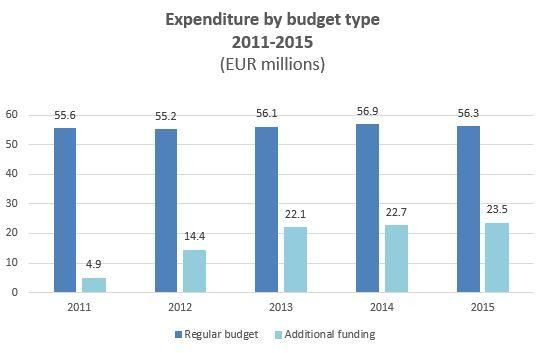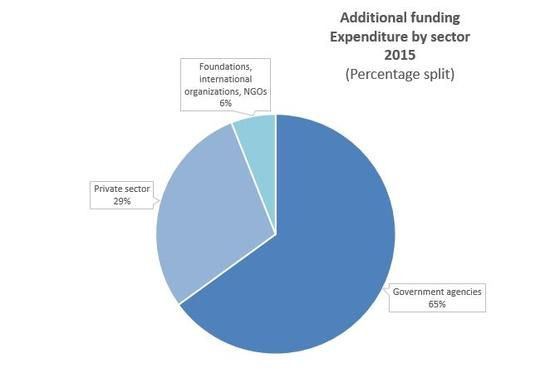What Is Interpol? As Europe Seeks To Root Out Terror Cells, World’s Police Force Interpol Steps In

As Belgian and French authorities search the continent for suspects tied to the terror attacks in Brussels and Paris, the countries are receiving support from the world’s police force.
Interpol (International Criminal Police Organization) has pledged its full operational and analytical support for investigations of the Nov. 13 attacks in Paris, which left 130 people dead, and the series of bombings in Brussels on March 22 that killed 32 people. A European cell of the Islamic State group, also known as ISIS or ISIL, has claimed responsibility for both tragedies.
Belgian officials Saturday charged four suspects thought to be involved in the Brussels events. The group included Mohamed Abrini and Osama Krayem, the last known fugitives of the Paris attacks and members of the ISIS terror cell. Abrini, 31, later admitted to authorities that he was the “man in the hat” who escaped the March 22 attacks as three accomplices suicide-bombed an airport and a subway station.

The Paris and Brussels attacks have drawn searing scrutiny over the ability of European nations to root out threats before they develop into attacks, and track down perpetrators immediately after an attack. Critics say authorities are slow to share their findings and have failed to collaborate on cross-border investigations.
Interpol said it aims to help fill that information gap by allowing its member countries to update their national databases and crosscheck information they hold on suspects and wanted persons. “Internationally shared information needs to be a primary resource for officers on the ground, and we need to ensure that this information moves faster than the terrorists,” Interpol Secretary General Jürgen Stock said in a statement days after the Brussels attacks.
Still, many people outside the realm of international law enforcement know little about the organization vowing to take on the world’s terrorists. Here’s a closer look at Interpol and what it does.
A Global Police Force
Interpol, based in Lyon, France, is responsible for coordinating operations among 190 member countries. Each nation appoints a delegate to serve on its General Assembly, which makes all the decisions about the group’s policies, finances and activities. Interpol is an independent organization that works closely with the United Nations and European Union and has liaison offices in New York City and Brussels.
But Interpol can’t conduct investigations or make arrests. Instead, it runs a handful of programs meant to gather data that might be relevant to member countries and keep tabs on individuals and activities deemed suspicious. Its Stolen and Lost Travel Documents database, for instance, can help investigators tracking down people who move between several countries in non-consecutive routes — an increasingly common tactic of today’s suspected terrorists. A joint initiative with the Group of Seven political forum, of which the U.S. is a member, allows countries to share alerts on newly detected forms of document counterfeiting.

Interpol’s more controversial Red Notices program alerts police forces around the world when someone is wanted for arrest or extradition by a certain country. Khalid el-Bakraoui, who died while carrying out a suicide bombing in the Brussels subway station, was the subject of a Red Notice in Belgium for reportedly violating conditions of his parole.
But critics say authoritarian regimes have abused the Red Notices program to pursue dissidents overseas, the Atlantic magazine reported. The Russian activist and journalist Petr Silaev, for instance, was arrested and imprisoned in Spain after Interpol posted a Red Notice on charges of hooliganism. (Spain ultimately refused to extradite him to Russia after months of legal wrangling.)
Who Funds Interpol?
Interpol reported a consolidated budget income of nearly 80 million euros ($91.2 million) for 2015.
Member countries are required to make an annual contribution, although the amount is determined based on what each country is able to pay. Members contributed $60.2 million last year, according to Interpol financial statements. The United States paid the most, with a $10.8 million contribution, while Zimbabwe, one of the lowest contributors, gave just $18,000.
Five years ago, Interpol began signing deals with a large number of private partners, including tobacco giants like Phillip Morris International, pharmaceutical companies such as Sanofi and tech firms including Kaspersky Lab. The private funding has boosted Interpol’s budget by nearly a third, Politico reported last year.


Private-sector donations totaled about $7.8 million in 2015, Interpol said. Foundations, international groups and nongovernmental organizations contributed an additional $1.7 million, while member countries threw in an additional $17.3 million beyond the regular contribution.
Critics of the private partnership model say it raises questions about Interpol’s impartiality. The organization found itself in an embarrassing position last year as a U.S.-led corruption probe ensnared officials and associations of FIFA, the global soccer federation. Interpol had previously signed a 10-year deal worth 20 million euros ($22.8 million) with FIFA to fund an anti-gambling and anti-match-fixing program, and the deal prompted conflict-of-interest concerns.
Interpol in June suspended the donation, citing a clause in its agreement with FIFA that states the funding party’s activities must be “compatible with the principles, aims and activities of Interpol.’” On its website, Interpol said in light of the rising amount of non-member contributions, the organization is “continuing to conduct a review process” of additional funding streams.
© Copyright IBTimes 2024. All rights reserved.





















